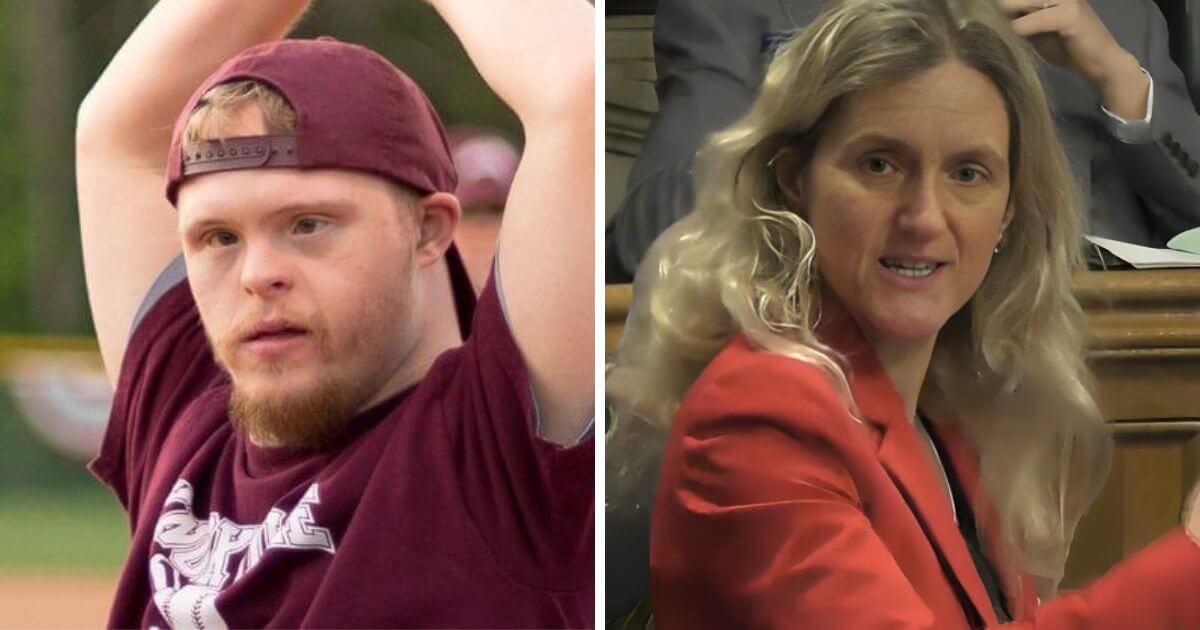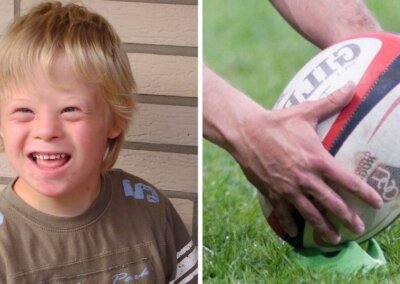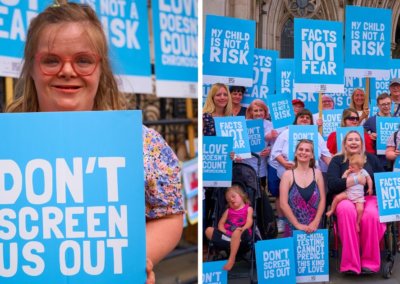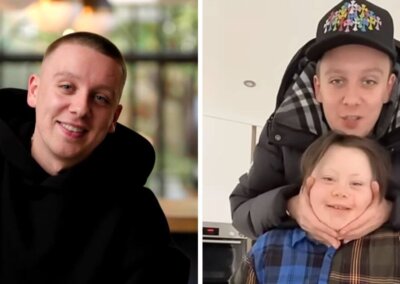The assisted suicide Bill Committee has voted down an amendment to safeguard people with Down’s syndrome.
Damien Hinds MP tabled an amendment to protect people with Down’s syndrome from assisted suicide. The amendment, if successful, would have required the publication of guidance consistent with the Down Syndrome Act 2022 to meet the needs of adults with Down’s syndrome.
However, having rejected amendments to ensure people with anorexia or diabetes were not eligible for assisted suicide under the Bill, Kim Leadbeater joined a number of colleagues in voting down the amendment to safeguard people with Down’s syndrome by 13 votes to 8.
Over 50 organisations representing people with Down’s syndrome, including Down Syndrome UK, Down’s Syndrome Scotland, the National Down Syndrome Policy Group and many other major organisations, have come out saying they are deeply concerned with the impact that the Leadbeater assisted suicide Bill will have on individuals with Down’s syndrome and learning disabilities, their families and related professionals.
Tommy Jessop, an actor with Down’s syndrome known for his role in the prime time BBC drama, Line of Duty and Steven Spielberg’s Masters Of The Air, has also spoken of his concerns about the Bill to Parliament, saying in January 2025 “I do feel very sorry for the people who are suffering, but… I think some people really might be pressured into asking people to help them die. From my experience, when people are pressured or rushed into things, I think it really is difficult to say no”.
“I don’t want that to happen to people with learning disabilities or other people as it will scar them for life… We know some people are already pressured to have abortions when they are expecting a baby with Down syndrome. This is the same as the assisted dying law. I think it is a really bad idea having people choose when to end their life. We should help them to live pain free”.
At Committee Stage, Danny Kruger MP joined his colleague Daniel Francis MP in speaking passionately in support of the amendment.
Kruger explained that people with Down’s syndrome may interpret a doctor’s discussion of assisted suicide as a suggestion and therefore may be influenced to “choose” it because of this suggestion. He said “As a society, we serially misunderstand and degrade the value of people with Down’s syndrome. They are victims of the system, particularly in healthcare”.
Kruger added “Expert advice is that it is very difficult to spot coercion when dealing with people with Down’s syndrome. It is very difficult to ensure that one is getting informed consent. A point that has been made, in particular by the Down’s Syndrome Research Foundation, is that a discussion with someone with Down’s syndrome can often feel to them as if a suggestion is being made”.
Noting “a fundamental assumption” that “the lives of people with Down’s syndrome are worth less than others”, Kruger said “we know from research that the lives of people with Down’s syndrome are as fulfilling, joyful, positive and constructive as everybody else’s”.
“The most marvellous fact is that 99% of people with Down’s syndrome say that they are happy with their life”.
Multiple organisations share concerns about assisted suicide Bill
In addition to the open letter from the 50 organisations mentioned above, a number of organisations representing people with Down’s syndrome have presented written evidence to the Committee outlining their concerns with the Bill. These organisations include the National Down Syndrome Policy Group, the Down Syndrome Research Foundation UK, the All-Party Parliamentary Group on Down Syndrome, and the Lejeune Clinic for Children with Down Syndrome.None of these groups were invited to present oral evidence to the Committee.
Quoting written evidence provided by Lucienne Davies from Get on Down’s, Francis said “There is an obvious worry about informed consent for people with learning disabilities. As a group we are fully aware that people with Down syndrome are extremely vulnerable to the intentions and suggestions of caregivers, health professionals and authority figures, informed consent is therefore a major concern in end-of-life decisions”.
“This dangerous Bill will present an acute threat to people with Down’s syndrome”
After the failure of the amendment to pass, spokespeople from Down’s syndrome groups blasted the lack of protection for those with Down’s syndrome in the Leadbeater Bill.
Rachael Ross MBE of the National Down Syndrome Policy Group (NDSPG) said
“Many people with Down syndrome and other disabilities are now outliving their parents or guardians. The consequence of this is that they can be highly dependent upon the state and healthcare organisations. Getting this Bill right to ensure that those with Down Syndrome are properly protected could not be more important. As it stands, the Leadbeater Bill does not adequately protect those with Down syndrome. They’re particularly at risk”.
Nicola Enoch, CEO of Down Syndrome UK (DSUK), said “Sadly, we know that in so many ways across society, the lives of those with Down syndrome are too often misunderstood and devalued. This makes people with Down syndrome especially vulnerable to coercion and pressure under assisted suicide laws”.
Spokesperson for Right To Life UK, Catherine Robinson, said “Sadly, despite substantial warnings from organisations representing people with Down’s syndrome, this amendment was rejected. This dangerous Bill will present an acute threat to people with Down’s syndrome, who will be particularly vulnerable to coercion and pressure”.












